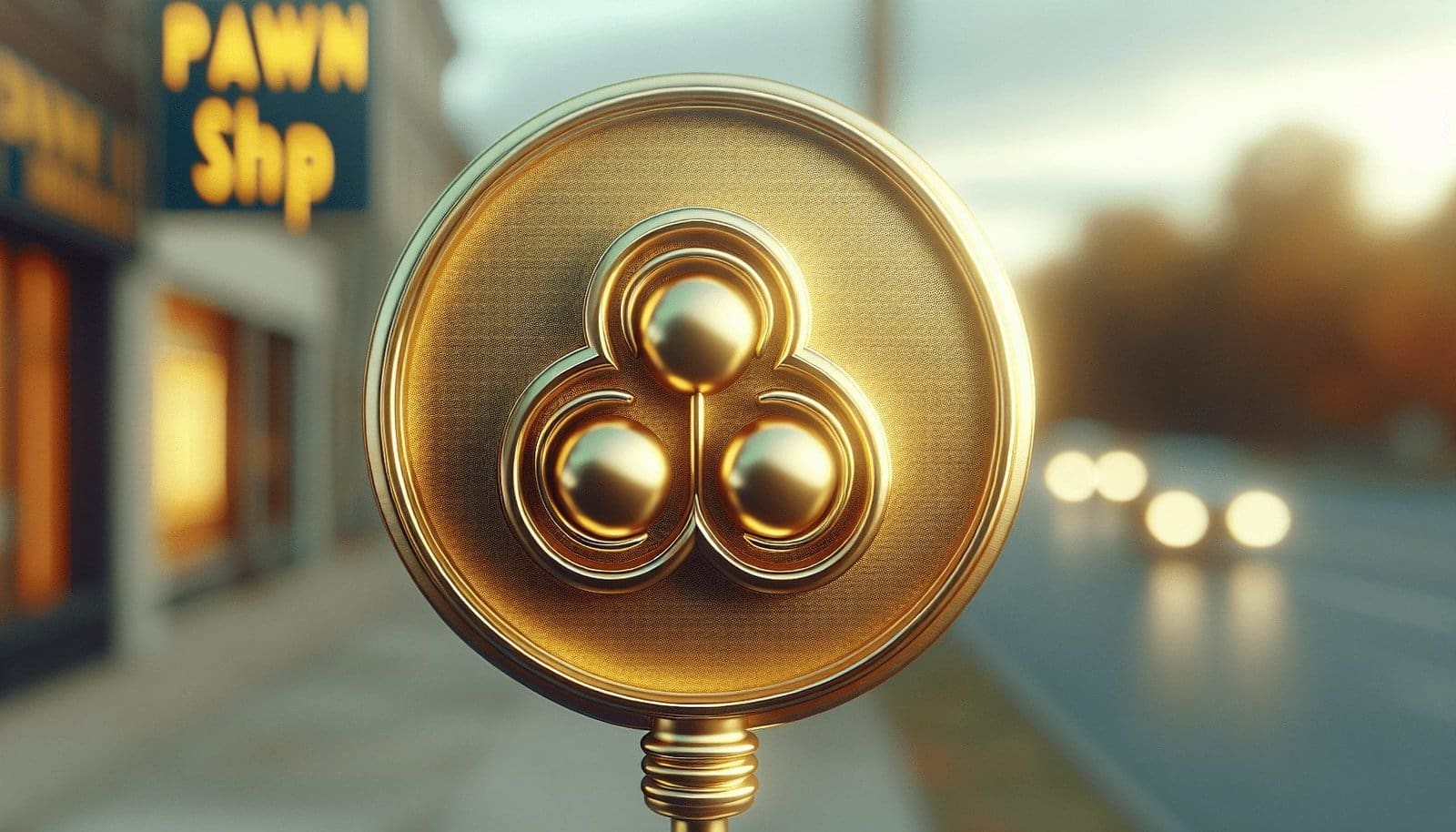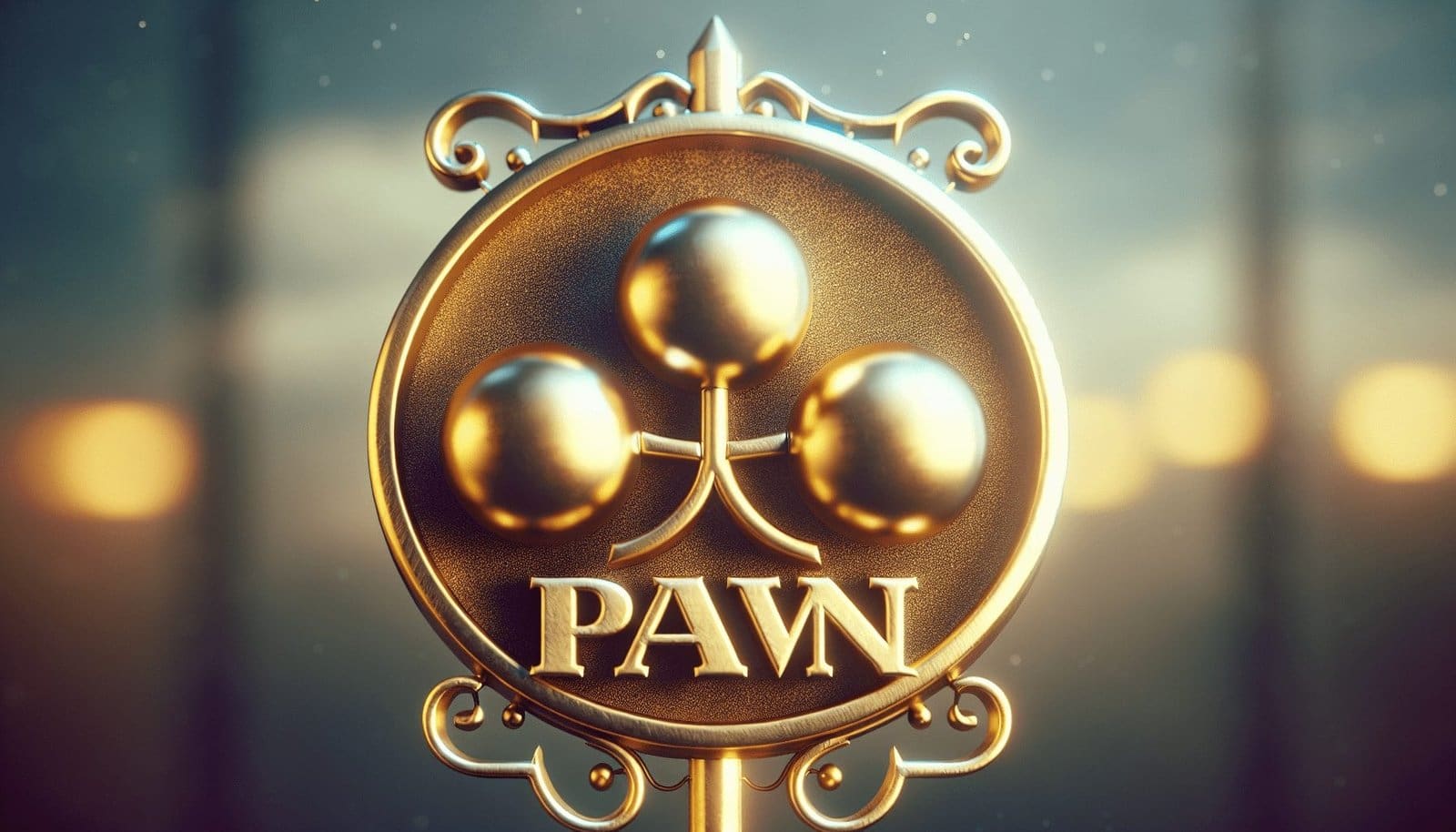In today's financially uncertain world, getting a loan can be a daunting task, especially if you have bad credit. But fear not, because we have a solution for you! Introducing the world of pawn shop loans, where bad credit is not an obstacle. With a few simple steps, you can secure a loan from a pawn shop and get the cash you need in no time. Whether you're looking to pay off unexpected bills or fund a much-needed vacation, we've got you covered. So sit back, relax, and let us guide you on how to get a pawn shop loan with bad credit.

Understanding Pawn Shop Loans with Bad Credit
What is a pawn shop loan?
A pawn shop loan is a type of collateral-based loan where individuals can borrow money by providing personal items as security. Unlike traditional loans, pawn shop loans do not require a credit check or any proof of income. Instead, the value of the item being pawned determines the loan amount.
How do pawn shop loans work?
When someone needs quick cash but has bad credit, they can bring an item of value to a pawn shop. The pawnbroker will evaluate the item and offer a loan amount based on its estimated worth. If the borrower accepts the loan offer, they will receive the cash immediately and leave their item with the pawn shop as collateral. The loan typically has a short-term repayment period, often 30 days, during which the borrower can repay the loan with interest. If the borrower fails to repay the loan within the specified time, the pawn shop can sell the item to recover its money.
What is bad credit?
Bad credit refers to a low credit score or a credit history that includes late payments, defaults, bankruptcies, or other negative financial records. Having bad credit makes it difficult for individuals to get approved for traditional loans from banks or other financial institutions. However, pawn shop loans provide an alternative for those with bad credit because the loan is secured by the value of the item rather than the borrower's creditworthiness.
Can you get a pawn shop loan with bad credit?
Absolutely! Pawn shops do not consider credit scores when granting loans since they are based on collateral. Therefore, individuals with bad credit are often able to obtain pawn shop loans without any hassle. As long as you have a valuable item to offer as collateral, the pawn shop will be willing to provide you with a loan. This makes pawn shop loans a viable option for those looking for quick cash, even with bad credit.
Choosing the Right Pawn Shop
Researching local pawn shops
The first step in obtaining a pawn shop loan with bad credit is to research local pawn shops in your area. You can do this by searching online or asking for recommendations from family and friends. Look for pawn shops that have been operating for a long time as they may have more experience and can offer a better understanding of the loan process.
Reading customer reviews
Once you have identified a few potential pawn shops, take the time to read customer reviews. This will provide valuable insight into the experiences others have had with the pawn shops in question. Pay attention to reviews that specifically mention pawn shop loans or bad credit situations to see if the shops are accommodating to individuals with similar circumstances.
Checking the shop's reputation
In addition to customer reviews, it is important to check the overall reputation of the pawn shop. Look for any complaints filed against the shop with local agencies or organizations such as the Better Business Bureau. A reputable pawn shop will have a good track record and will prioritize offering fair loans and excellent customer service.
Visiting the shop in person
Lastly, before making a final decision, it is recommended to visit the pawn shop in person. This will give you the opportunity to get a feel for the establishment and its staff. You can ask any questions you may have regarding the pawn shop loan process, discuss your bad credit situation, and assess their level of professionalism and willingness to assist you.
Pawn Shop Loans With Bad Credit
Preparing Your Item for Pawn
Determining the value of your item
To ensure you obtain the highest loan amount possible, it is important to accurately determine the value of your item before bringing it to the pawn shop. Research similar items online or consult experts in the field to get an idea of its market value. Keep in mind that the pawn shop will likely offer a loan amount that is less than the item's actual value, as they need to account for the risk involved.
Cleaning and presenting your item well
When presenting your item to the pawn shop, take the time to clean and polish it. A well-maintained item indicates that you take care of your belongings and increases the chances of obtaining a higher loan amount. Additionally, if you have any original packaging, manuals, or certificates of authenticity, bring them along as they can further validate the item's worth.
Collecting any documentation or receipts
Collecting any relevant documentation or receipts associated with your item can also be beneficial. If you have any paperwork that proves the authenticity or history of the item, it can increase the confidence and trust of the pawnbroker. This documentation can include receipts, appraisals, certificates of authenticity, or repair records. While not always necessary, having these documents can help support the value and legitimacy of your item.
Negotiating Loan Terms
Understanding loan terms and interest rates
When offered a pawn shop loan, it is crucial to fully understand the loan terms and interest rates being proposed. Ask the pawnbroker to explain any terms or conditions that you are unsure about. Familiarize yourself with the interest rate and whether it is fixed or variable. This will help you determine the total amount you will need to repay and make an informed decision about accepting the loan offer.
Exploring repayment options
Pawn shops typically offer various repayment options, including monthly installments or a lump sum payment at the end of the loan term. Consider your financial situation and choose the option that best fits your needs and capabilities. If possible, opt for a repayment plan that allows you to comfortably make timely payments without straining your finances.
Negotiating loan amounts
While pawn shop loans are primarily based on the value of your item, there may be room for negotiation. It is worth respectfully discussing the loan amount offered by the pawnbroker, especially if you believe the item's value exceeds their initial appraisal. Present any evidence or expert opinions that support your claim, but be prepared for the possibility that the pawnbroker's evaluation is accurate.

How To Secure A Loan From A Pawn Shop
Meeting the Shop's Requirements
Providing necessary identification
To obtain a pawn shop loan, you will need to provide proper identification. Typically, a government-issued ID such as a driver's license or passport is required. Pawn shops have an obligation to verify the identity of their potential borrowers to prevent any fraudulent activity. Be sure to bring your identification with you when visiting the pawn shop.
Meeting minimum age requirements
Pawn shops often have minimum age requirements for borrowers, typically 18 or 21 years old depending on local regulations. Make sure you meet the age requirement before considering a pawn shop loan. Age restrictions help ensure that individuals borrowing money are legally capable of entering into a contract and are responsible enough for financial transactions.
Confirming legal ownership of the item
Pawn shops are legally required to ensure that the items they receive as collateral are legally owned by the individuals who bring them in. Be prepared to provide proof of ownership for the item you wish to pawn, especially for unique or expensive items. This can be in the form of purchase receipts, certificates of authenticity, or any other documentation that establishes your legal ownership.
The Pawn Shop Loan Process
Submitting your item for appraisal
Once you have chosen a pawn shop and prepared your item for evaluation, you can submit it to the pawnbroker for appraisal. The pawnbroker will examine the item carefully, assess its condition and authenticity, and determine its value based on current market trends. It is essential to allow the pawnbroker to thoroughly inspect the item to ensure an accurate appraisal.
Receiving a loan offer
After the appraisal, the pawnbroker will present you with a loan offer based on the value of your item. This offer will include the loan amount, interest rate, and any applicable fees. Take the time to carefully consider the offer and make sure you understand the terms before accepting it.
Accepting the loan terms
If you are satisfied with the loan offer, you can accept the terms and proceed with the loan process. This acceptance usually involves signing a contract or agreement that outlines the details of the loan, including the repayment period, interest rate, and consequences for non-payment. Make sure you read the agreement thoroughly and ask any questions you may have before signing.
Receiving the loan amount
Once the loan agreement is signed, the pawnbroker will provide you with the loan amount in cash or through another agreed-upon method. Congratulations! You now have the funds you need to address your financial needs.
How to Get a Pawn Shop Loan with Bad Credit
Repaying Your Pawn Shop Loan
Understanding repayment terms
It is important to fully understand the repayment terms of your pawn shop loan to avoid any unexpected surprises. The terms will typically include the amount of time you have to repay the loan, the interest rate, and any additional fees or charges. Be sure to clarify any uncertainties with the pawnbroker before leaving the shop.
Making timely payments
To ensure a positive experience with your pawn shop loan, make every effort to make timely loan payments. Late or missed payments can result in additional fees, increased interest, or even the loss of your collateral item if the loan is not repaid within the agreed-upon timeframe. Set reminders or establish automatic payments to stay on track and avoid any unnecessary complications.
Exploring extension options
If you find yourself unable to repay the loan within the agreed-upon term, it is crucial to communicate with the pawn shop as soon as possible. Some pawn shops may offer extension options that allow you to extend the loan period in exchange for additional fees. While this can provide temporary relief, keep in mind that extensions also mean more interest and fees, making the overall loan cost higher.
Reclaiming your item
Once the loan has been fully repaid, the item you pawned can be reclaimed. Present the proof of loan repayment, typically the pawn ticket, and any necessary identification to the pawn shop. The pawnbroker will return your item in the same condition it was when it was pawned.
Building Credit with Pawn Shop Loans
How pawn shop loans can affect credit
Pawn shop loans do not directly affect your credit score since they are not reported to credit bureaus. However, if you fail to repay the loan and the pawn shop sells your item to recover its money, it could result in a collection account or legal action, both of which can negatively impact your credit. It is crucial to repay the loan as agreed to minimize any potential credit damage.
Using loans responsibly to improve credit
While pawn shop loans may not directly improve your credit, using them responsibly can indirectly help build credit over time. By demonstrating responsible financial behavior, such as repaying your loan on time, you show potential lenders that you are capable of meeting your financial obligations. This can positively impact your creditworthiness, making it easier to obtain credit in the future.
Exploring other credit-building options
If you are seeking to rebuild your credit, consider exploring other credit-building options in addition to pawn shop loans. Secured credit cards, for example, require a security deposit but can help establish or rebuild credit when used responsibly. You can also consult with credit unions, nonprofits, or credit counseling services to explore alternative ways to improve your credit.
Alternatives to Pawn Shop Loans
Exploring personal loans
If you have bad credit and need a loan, it may be worth exploring alternative options such as personal loans. Personal loans often require a credit check and income verification, but there are lenders who specialize in lending to individuals with bad credit. It is important to compare interest rates, terms, and fees before committing to any loan to ensure you choose the best option for your financial needs.
Considering secured credit cards
Secured credit cards are another alternative for individuals with bad credit. These cards require a security deposit, typically equal to the credit limit, but can help establish or rebuild credit when used responsibly. By making timely payments and keeping your credit utilization low, you can improve your credit score over time and potentially qualify for more favorable loan terms in the future.
Seeking assistance from credit unions or nonprofits
Credit unions and nonprofit organizations often provide financial assistance and counseling to individuals with bad credit. They may offer low-interest loans, debt management programs, or other resources to help you improve your financial situation. These organizations focus on providing support and guidance tailored to your individual needs, increasing your chances of successfully addressing your financial challenges.
Tips for Success with Pawn Shop Loans
Borrowing only what you can repay
To avoid potential financial difficulties, it is crucial to borrow only what you can comfortably repay. Carefully consider your income and expenses before accepting a loan offer from a pawn shop. Borrowing more than you can afford to repay can result in further financial strain and the potential loss of your collateral item.
Understanding the risks involved
While pawn shop loans can be a convenient solution for those with bad credit, it is important to understand the risks involved. If you are unable to repay the loan and lose your collateral item, you will not be able to recover it. Assess the value and sentimental importance of the item you plan to pawn before proceeding with the loan process.
Maintaining good communication with the pawn shop
Maintaining good communication with the pawn shop throughout the loan process is essential. If you anticipate any difficulties repaying the loan on time, it is best to inform the pawnbroker as soon as possible. They may be willing to work with you and provide options to help avoid any negative consequences. Open and respectful communication can go a long way in ensuring a positive experience with a pawn shop loan.
In conclusion, pawn shop loans can provide a reliable option for individuals with bad credit who need quick access to cash. By understanding the loan process, choosing the right pawn shop, properly preparing your item for pawn, and effectively negotiating loan terms, you can navigate the process with confidence. Remember to explore other credit-building options, borrow responsibly, and communicate openly with the pawn shop to ensure a successful outcome.




